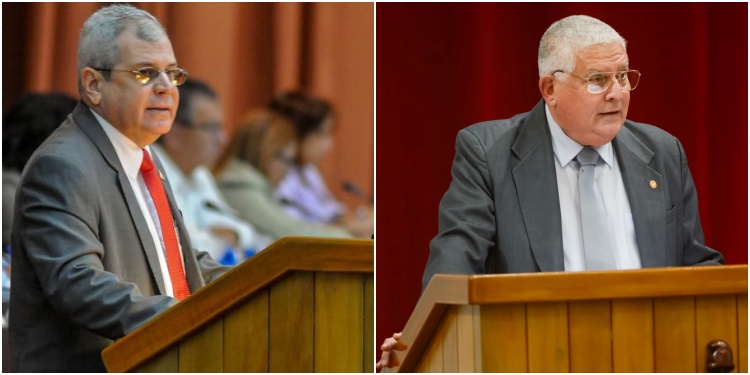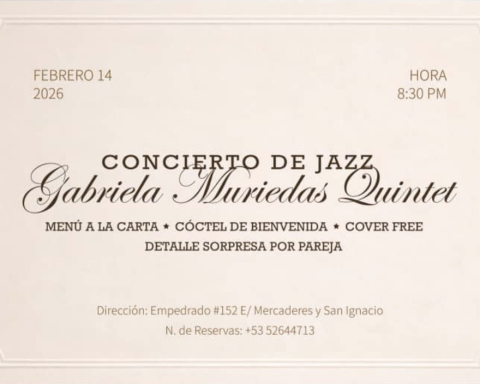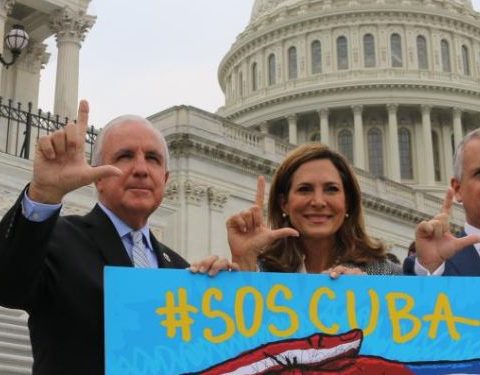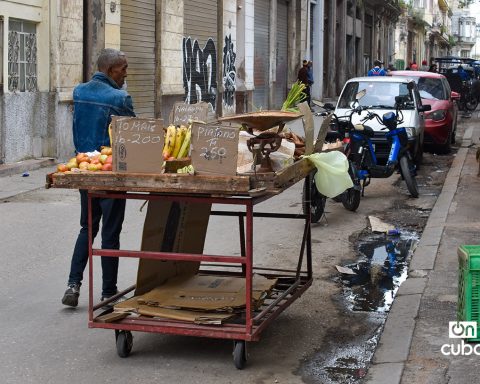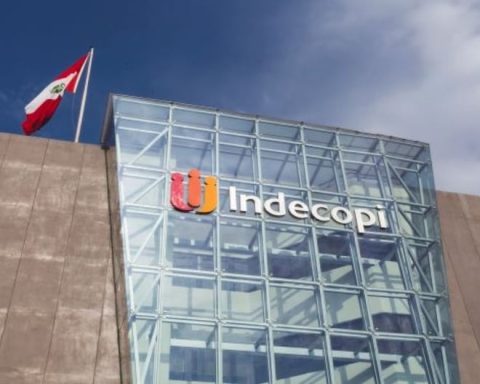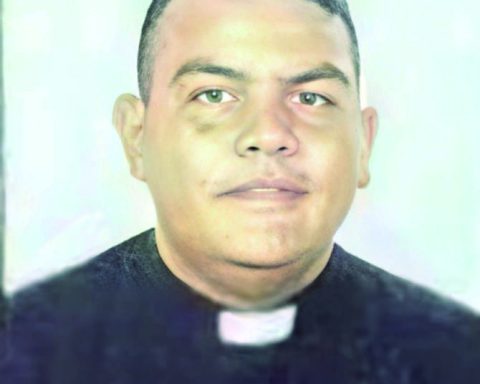CDMX, Mexico. – In its December 7 edition of the official newspaper Granma published a preview of the content of the next sessions of the Cuban Parliament, which began on December 12. The secretary of the National Assembly, Homero Acosta, announced all the issues to be discussed, but said nothing about how all the laws approved since 2019 violate constitutional rights.
A lawyer by profession, this official supports all the human rights violations that occur in Cuba. José Luis Toledo Santander, also a jurist, ―president of Parliament’s Committee on Constitutional and Legal Affairs―, does the same, who from his position has supported and collaborated with all violations of constitutional rights through the laws and decree-laws that unanimously approved by the National Assembly.
Some examples of these approved violations:
-In it Penal Code all constitutional rights related to freedom of expression, demonstration, assembly, association and the press are criminalized, with articles as aberrant as “enemy propaganda” (120) that criminalizes fundamental rights, leaving each authority discretionary to determine the crime of “arbitrary exercise of constitutional rights”.
Likewise, article 143 penalizes receiving financing from sources that are not officially recognized. In addition, the number of crimes punishable with the death penalty is expanded.
-The Law for the Protection of Constitutional Rights does not specify which of these rights could be prosecuted, but rather the acceptance or not of the violated constitutional rights is delegated to each authority, in a discretionary and arbitrary manner.
-In the Electoral Law, the popular consultation without binding effect, the candidacy commissions inherited from the Soviet system, the opacity of the electoral councils in the counting of votes and the absence of independent public audits of the Communist Party of Cuba (PCC) are maintained. , as a means of verification and citizen electoral observation. In Cuba you vote but you don’t choose.
Violations in the bills to be approved:
–The Social Communication bill in its articles 12 and 13, it criminalizes citizen criticism of public policies and responsible officials, by defining the content acceptable for an ideology, and excluding other citizens who do not share it. This bill, which will be approved by Parliament, maintains an ideological bias and excludes both citizens and media that are not related to the communist dictatorship, criminalizing political discrepancies and classifying them as “enemy propaganda”, a crime that can be fabricated by authorities in a discretionary and arbitrary manner.
–The bill for the promotion of livestock maintains the penalization of private property, the production and commercialization of cattle in Cuba, activities that will continue to be subject to the ministries and state companies that demand at least 75% of cattle production as “state commission”, and establish prices below From the market.
Said law meticulously controls the commercialization, production, registration and obligations of the ranchers, a mechanism that has existed for six decades and demonstrated its inefficiency for the production of food, a verifiable reality in the decrease of the cattle mass to less than half of the patrimony that existed in Cuba in 1959.
–The bill of confiscation for public utility or social interest allows the expropriation of private assets by the Council of Ministers and its Executive Committee, the heads of agencies of the Central State Administration, the provincial governor, the Municipal Administration Council and the directors of the offices of the Special Development Zones , without the affected person being able to prove that it was a robbery up to three years after the expropriation. In other words, the confiscatory authorities will not be controlled for a period of three years after appropriating the assets, without there being any institution independent of the PCC and the central agencies of the State administration that defends the interests of the expropriated citizens. On the other hand, the compensation set by the State in the event of confiscations has historically been derisory or not paid.
–The bill of the Comptroller General of the Republic and the superior control system of public funds and administrative management limits the scope of audits to the National Assembly of People’s Power, the Council of State, the Council of Ministers, the People’s Supreme Court, the Attorney General’s Office of the Republic and the National Electoral Council, as well as the political, social and mass organizations that the Constitution of the Republic and the State recognize.
The Political Bureau of the PCC, the Central Committee, the President of the Republic and the Prime Minister cannot be subjected to an audit. The Comptroller will be subordinate to the President and Vice President of the Republic to audit when these officials allow or request it.
This excessive control supposedly aimed at curbing corruption has proven to be useless for managing public funds and detecting those who commit theft, diversion or embezzlement of national assets and resources. The PCC cannot continue oblivious to citizen scrutiny and audits, without a transparency policy on the management of public funds.
This brief account shows that officials like Homero Acosta and José Luis Toledo Santander, in charge of ensuring the legal security of the nation and universal human rights, favor the single party that has been in power for six decades, serve an exclusive ideology and approve laws that violate constitutional rights.
OPINION ARTICLE
The opinions expressed in this article are the sole responsibility of the person who issues them and do not necessarily represent the opinion of CubaNet.
Receive information from CubaNet on your cell phone through WhatsApp. Send us a message with the word “CUBA” on the phone +525545038831, You can also subscribe to our electronic newsletter by giving click here.
